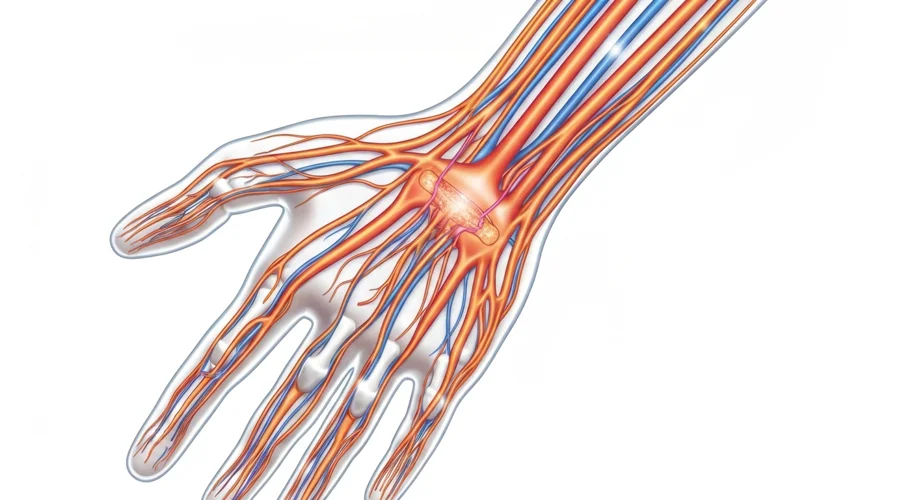It’s fascinating how our bodies work, isn’t it? Even simple actions, like picking up a cup or typing on a keyboard, rely on an incredibly complex communication system: our nervous system.
Today, I want to talk about something that can disrupt this communication, leading to a condition like partial paralysis of the hand. While I’m trained in atmospheric science and biology, understanding the biological mechanisms behind how our bodies function is something I find incredibly compelling.
So, what exactly is going on when a hand loses its ability to move freely?
Think of your nerves as tiny electrical wires. They carry messages from your brain to your muscles, telling them when and how to move. These messages travel along specialized cells called neurons. When these nerves are damaged or compressed, that communication line gets fuzzy, or worse, completely cut off.
One common culprit is nerve compression. This can happen in several ways:
- Carpal Tunnel Syndrome: This is a really common one. The median nerve, which runs from your arm into your hand, passes through a narrow passageway in your wrist called the carpal tunnel. If the tissues around this tunnel swell up, they can put pressure on the nerve. This pressure can cause tingling, numbness, and weakness, and if left untreated, can lead to significant loss of hand function.
-
Cubital Tunnel Syndrome: Similar to carpal tunnel, but this affects the ulnar nerve, often called the “funny bone” nerve, as it passes near the elbow. Compression here can cause numbness and tingling in the ring and little fingers, and weakness in the hand.
-
Cervical Radiculopathy: Sometimes, the problem starts higher up, in the neck. If a nerve root in your neck gets pinched, perhaps due to a herniated disc or bone spurs, the signals to your hand can be disrupted, causing weakness or paralysis.
Beyond compression, other factors can also lead to nerve damage and subsequent paralysis:
- Trauma: A direct injury, like a cut or a severe blow to the arm or hand, can sever or damage nerves. Even a fracture can sometimes compress a nearby nerve.
- Diseases: Certain medical conditions can affect nerve health. Diabetes, for instance, can cause nerve damage over time (diabetic neuropathy), which can affect sensation and motor control in the hands and feet. Autoimmune diseases can also attack nerve cells.
- Lack of Blood Supply: Nerves need a constant supply of oxygen and nutrients from blood. If blood flow to a nerve is significantly reduced or blocked, it can be damaged, leading to paralysis.
- Toxins: Exposure to certain toxins can also harm nerve cells.
It’s a complex interplay of our body’s electrical signaling and the physical health of the nerves themselves. When that intricate dance is disrupted, the result can be anything from a mild loss of sensation to complete paralysis. Understanding these biological pathways helps us appreciate the delicate systems that allow us to interact with the world around us.

